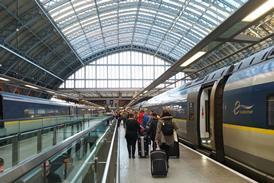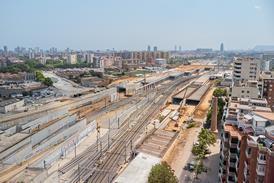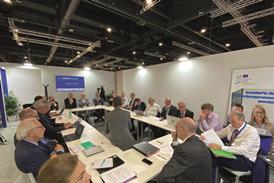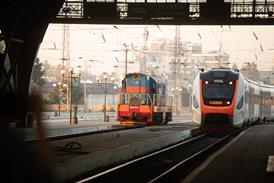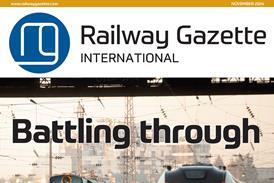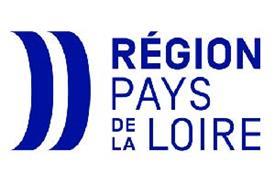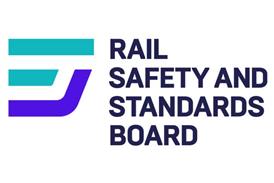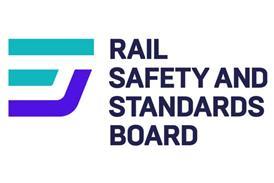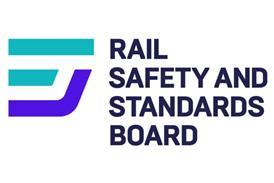INTRO: Moving German Railway into the private sector is not on the immediate agenda, but Chairman Hartmut Mehdorn is keen for DB to gain access to the capital markets to help fund investment. Mehdorn aims to cut costs by DM8·4bn by 2004 and is overseeing a programme of change that includes setting up 37 microbusinesses to run regional services. Murray Hughes put the questions
Hughes: What are the next steps in the German railway reform programme, and when will they be implemented?
Mehdorn: The first phase of the reform programme dealt with the marriage of the two German railways, requiring a structure with at least four businesses to be established. These now form the basis of today’s management structure. But not everything set up in the first phase was right. Our job in the next phase is to put right those mistakes and to adjust the structure so that it is a better fit for purpose. By 2004 we want to be in a position to enter the capital markets.
That means that we must improve our productivity and align ourselves better with our customers and our markets, at the same time developing our activities on a European scale - and for that we need to have fair conditions of competition.
We have already instigated changes such as the launch of a new pricing structure. The first phase will be completed no later than the end of next year, replacing the present fares jungle and making our pricing simpler and more attractive to the customer. We will make increasing use of electronic media for marketing and to deliver information to passengers, and we shall pay special attention to our customers’ wishes by offering a service covering the whole travel and transport chain. We call this ’rail travel before and after’, and we envisage that a single ticket will suffice for the entire trip, even if it includes car rental or a taxi ride. Similarly, for freight, one document will cover use of rail, lorry or barge - the whole logistics chain. We believe this will be the key to success in the market.
A fundamental principle for the future will be that we offer no services that have a negative impact on our balance sheet. Our aim is to be a modern provider of mobility and logistics services in Germany and across Europe.
Hughes: What options are there for full or partial privatisation of DB and its subsidiaries, and to what extent do you believe that private ownership brings advantages for a railway’s customers?
Mehdorn: DB and its subsidiary business units are already organised along the same lines as a private-sector company, albeit with the state as the sole shareholder. There are no concrete plans for selling off the railway, and privatising parts of it would destroy the organisation and weaken the rail mode.
The railway is a united business, and its individual parts are locked together like cogs on gear wheels. Only if everything works together without problems can the whole railway system function. And that applies too to the much discussed separation of operations and infrastructure.
Across the world the railways that are economically the most successful are those that are vertically integrated. It brings advantages for customers in terms of service, safety and quality and is the most efficient way to run rail traffic.
Hughes: You have mentioned the possibility of a stock market listing within five years. How realistic is that?
Mehdorn: What we have said is that we want to be able to enter the capital markets within five years. Our number one objective for the coming years is to create the conditions to do just that. The reason is that after 2002 we shall lose the federal grants for historic debts that were paid to the new Länder. We have to compensate for this.
At the same time, because of the backlog of past investment, our depreciation for today’s investments and credit repayments will be rising. Entering the capital markets requires us to be in a position to earn the necessary profits. Only then would we be able to hold our own in the financial markets. And only then would a stock market listing be worthwhile - and in any case that decision would only be taken by the government as owner of the national railway.
Hughes: What is your judgement of this year’s financial performance, and how serious are the losses incurred because of the low number of visitors to Expo 2000 in Hannover? Mehdorn: Obviously I cannot give you figures for the whole year, but I do know that we are below plan for the first half. As you say, one reason is the low number of visitors to Expo 2000. We had reckoned on substantially higher numbers of people using our long-distance services to and from Hannover. We relied on market research carried out by the Expo organisers, which suggested that many more people would visit the event.
Hughes: How do you see the situation developing in the next three to five years?
Mehdorn: Despite this year’s problems, we have set ourselves the task to improve performance by DM8·4bn by 2004, and that is a binding task for everyone at DB. We have taken, or are taking, the necessary measures and made it clear how important they are. So I am quite sure that our aim of achieving a 5% year-on-year financial improvement will be achieved - after all 5% is not a particularly high business target.
Productivity must rise
Hughes: It is no secret that DB has too many staff. How many staff will be employed by DB in 2005, and how can staff productivity be improved in the short and long term?
Mehdorn: We have never said that DB has too many staff. What we have said is that our budget for staff is too high. That is obvious from productivity comparisons with other organisations. We have set ourselves the target of reducing personnel costs by DM3·6bn by 2004. Each member of staff costs more than the income he or she generates, and that is something that we have to change.
We want to do that explicitly through an employment alliance. That means that apart from retirements and people who leave to change jobs, as far as possible no-one will be forced to leave.
Instead we want to adjust wages to the market level, which will improve our productivity and our competitiveness. And working hours and job functions will be matched to actual requirements. So that there are no hardship cases with wage adjustments, we aim to have a completely new deal with the unions which will entail setting up a special fund to pay for the future needs of staff. We are discussing this right now.
Hughes: A new management structure is being introduced this year. What does it look like, and what is happening to the subsidiaries, DB Regio, DB Reise & Touristik, DB Station & Service, DB Cargo and DB Netz?
Mehdorn: The new structure took effect on June 1, and the subsidiaries you name continue to exist in the same form as before. What has changed is that DB Regio and DB Reise & Touristik now report to one member of the holding board. That will lead to better integration of passenger services.
The overall problem was that the subsidiaries were drifting ever further apart, with the danger that system-wide thinking would be lost, and with it the advantages of an integrated network. By introducing joint marketing at the level of the holding company, a single communications service, and by bringing together the service functions needed by the various parts of the business, we have a tighter structure. This ensures that in the future our customers will once again experience our service as an integrated railway.
The future of freight
Hughes: There is some confusion about what is happening
with Railion and DB Cargo. Where are you in the merger process?
Mehdorn: The merger between Railion Benelux and DB Cargo has been completed, and it holds major significance for the future of rail traffic between Germany and the Netherlands. To make the most of this alliance, both organisations will in future work more closely together than has been the case until now.
Hughes: Why do we not see the name Railion on any of the new DB Cargo locomotives?
Mehdorn: DB Cargo will retain its present identity and locomotives will continue to run bearing the DB Cargo logo; for the time being there is no plan to repaint them.
Nor are there any proposals to expand Railion by including other European operators. DB Cargo’s objective is to improve the operation of cross-border traffic through bilateral agreements and in a second step to set up bilateral marketing companies where possible. The process has already begun thanks to agreements signed with French National Railways, Swedish State Railways and Polish State Railways.
Hughes: Competition for freight traffic on DB’s own tracks is growing quite rapidly. How serious is this threat to DB Cargo?
Mehdorn: We are taking this competition very seriously. Apart from our traditional competitors, road, air and inland waterway, there are about 100 independent railway companies, some of whom are already competing against DB.
We are doing our own homework too. Our new DB Cargo director, Dr Bernd Malmstr

